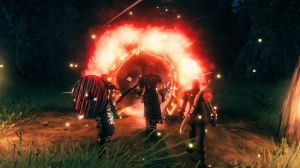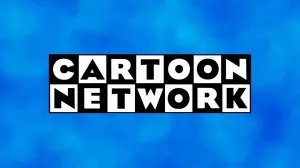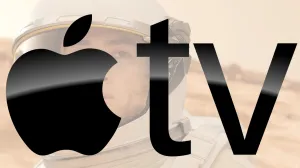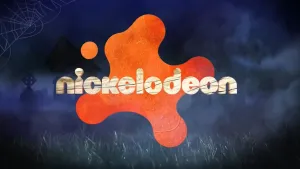Throughout the ’90s, horror’s most prominent figures had appeared in so many films that they became less like terrifying threats and more like cartoon characters, with the state of the genre being relatively lackluster. Filmmakers Eduardo Sanchez and Daniel Myrick were inspired to make a frightening experience that would strike fear in the hearts of audiences in ways that hadn’t happened in years, leading to the creation of The Blair Witch Project. While Sanchez and Myrick were the clear masterminds behind the whole premise, the effectiveness of the film rests largely on the film’s cast and their improvisational skills, with Heather Donahue, Joshua Leonard, and Michael C. Williams helping make the film a groundbreaking endeavor.
Videos by ComicBook.com
The film focused on a group of documentary filmmakers who get lost in the Maryland woods while investigating the legendary Blair Witch, only for supernatural occurrences to unfold, causing strife between them while searching for an escape. Sanchez and Myrick had an overall concept for the directions the story would go, with the directors offering daily clues to the actors about their characters and situations, allowing the cast to organically improvise a majority of their exchanges. Not only was the film itself an achievement, but the marketing campaign’s insistence that this footage was merely found in the woods caused a cultural sensation, leading audiences to investigate what really happened to these characters.
In honor of the film’s 20th anniversary, ComicBook.com caught up with Williams to discuss the filmmaking process, the film’s success, and how the experience impacted his life.
Exciting Opportunity
ComicBook.com: The auditioning process was far from traditional, as you weren’t only hired for your acting abilities, but the role also required improvisation and strenuous activity. What initially drew you to the project?
Michael C. Williams: I had gone to SUNY New Paltz and was trained as an actor, I went to school for theater. I was just looking for a job, to be quite honest. Now I am a fan of horror, and have been, but not a big, big fan. It’s not my passion, like I know it is for a lot of people. But certainly, mainly, I’m looking for employment at that time in my life.
Not necessarily being a big horror fan, how were you convinced to commit to such an ambitious project?
In the ad in Backstage magazine, which was basically the ad for the open call, it said, “Camping, hiking, and improvisational feature film.” You knew you would be outdoors, you would be improvising, and I love all of that. I love the outdoors. And I was trained in improvising scenes. Anytime we did scene work where I went to school, we would obviously do the script, but we would also have to improvise every scene we did, and work in improvisation a lot. So, for me, it was like an exciting venue, artistic, challenging venue, to try and get a job. And so the open call notice was exciting and enticing to me. It probably turned some people away.
And then when we got to the audition itself, there were more signs of, “Hey, this is a production that will likely cause you some discomfort, as you will be camping for a number of days in the woods, and we want to make sure before you audition that you would be okay with taking this job.” And actually, for me, it was even more enticing at that point, because I thought, “Wow, that sounds like something totally unique that nobody’s done before,” so as I heard more about it, the more excited I got.
Compelling Co-Stars
Not only would you be forced to improvise, but you had to really click with your co-stars to help sell the concept. What was the collaborative process like between you, Heather, and Joshua? How did you establish your dynamic?
It was a pretty quick turnaround between the auditions. During the audition process, I think they started with about 1,000 actors, between New York, Chicago, and Florida. And, in New York, there were certainly hundreds of us at the first open call. And the next weekend, there were 50, and the next weekend there were 25, or however they broke it down. So as we got further into the process, you started to get to know some of the people that you were improvising with, like Josh and Heather, not knowing we would ultimately get the part. I want to say Josh and Heather were already cast, and I was the last to be cast, with one more guy, it was so obvious that it was going back and forth, their decision between me and this one more guy.
So only in the sense that I got to know them a little bit during the auditions, and then we didn’t see each other for probably a month, and the next thing you know, we’re on a bus going down to Maryland, and talking about filmmaking and acting and careers. And then we only had two days together before we really started shooting, and we were pretty much separated, learning our equipment, and then we just got into shooting, and we became, rather than Joshua, Heather, and Michael, we just became Josh, Heather, and Mike, and off we went.
Complete Confidence

While the improvising and outdoor setting was something that drew you to the film and you were prepared for them, once you were actually shooting the film, were there points where you second-guessed what you signed on for? Were there doubts that things would come together?
No, I never felt that way. I always felt like we were doing something unique. I thought it was so well planned out by the directors and producers. It was so obvious that they had put months of effort into mapping out stations, the fact that we were using a GPS, which I had never heard of until that point in my life. The fact that we knew they were shadowing us, and that we were getting fresh batteries, and we were getting notes, based on the performances of the day before, because they would stay up overnight and watch the tapes from that day. They were really invested in it, but they seemed, and are, very intelligent folks, so you just felt like it was actually almost reverse of what you’re saying, it was almost like every day felt like, “Wow, this is really cool, I’m really excited about this process, let’s make this as authentic as possible. They’re so invested in us and in the process, that I want to be just as invested, and give them everything I have.”
Cut to, like I saw a rough cut of it, and I was like, “Oh, that’s not very good.” The editing was also exceptional as well. It took them a very long time to go from when we left to the woods to what they ultimately wound up with, that the audiences saw, and I think that was a pretty painstaking process. But when I first saw some footage, I said, “Wow, that’s interesting, it just doesn’t work, because it’s too long, or there’s too much of this or too much of that, it just seems jagged and rough.”
Of course, I’m not a filmmaker, so a rough cut is a rough cut, but that was the only moment I was like, “Oh, maybe it wasn’t so great.” And then it turned into, I couldn’t be happier with it. And obviously, it was a lot of right place, right time, too, because it was the dawn of the internet, really the dawn of reading what you saw on the internet and believing it, before we knew about fake news and all this. It was the dawn of reality television. Like, Survivor was that first year. It was also the time in our lives where video cameras became super accessible to every family. So the media was being utilized by families.
So it was all of these things happening at once, it was very fortuitous for us, very serendipitous, as well as just the effort we put into it.
It’s also almost frustrating to a degree that, while the film served as this cultural revolution, there’s no way that the franchise could manage to capture those added elements ever again.
I feel luckier than I do proud. I’m certainly proud of the work, but certainly feel fortunate and blessed that some how, some way, I stepped in shit and came out smelling like roses. That’s an old line.
Pivotal Moment
You might have been a little disheartened when you saw a rough cut of the film, but Eduardo previously explained that it was the moment in which your character admits he kicked a map into the river that engaged with him in a surprising way and gave him confidence that the process would work.
That was the freedom that they built for us, because that was not in any notes, that was not something they wanted, they didn’t direct me to do that through their notes, that was just sheerly out of the moment, and out of the belief in the circumstances, and out of being free to make choices as an actor. And also out of the fact that they didn’t see me kick the damn thing into the creek, which was amazing, and I remember looking up at them, like, “Well, you know, suck on that,” and they’re both still arguing, and they don’t realize that I did it, so I’m like, “You know what? I’m not even going to tell them I did it.” Just to see how far I can take this.
Again, serendipitous, fortuitous, if they had been watching me in that moment kick the map, it’s a whole different thing.
Has Eduardo ever revealed to you how effective that moment was for him?
You know, he’s told me that it was a special moment, but so much has been made of that scene over the last 20 years, that I don’t know when we ever first talked about it. It’s nice to hear, to be certain, maybe we’ve had that conversation, I’m not sure, but between being the map guy, and being the guy in the corner, there’s been so much conversation around that, which is another thing that I feel fortunate about. So I don’t know our specific conversations about it, but I’m glad to hear that it had an impact on him.
Creating Characters
While some actors take a method approach to bringing characters to life, fully embracing everything about their identity in their actual lives, the three of you had to go the opposite route and essentially craft characters inspired by your own personas, to a degree. Do you remember much of the mental process of finding the balance between playing a version of yourself, while also exaggerating facets of your identity to create a more engaging story?
It was certainly a process that you go through with two other people that has connected us for life, for better or for worse. Josh, Heather, and I have a special bond that’s some kind of kinship, some kind of brotherhood. Like being on the island in Lost, that would be how I would define our relationship, based on what we all went through together. And not only what we filmed, but also, what we went through together as a byproduct of the sensationalism of the film, and of the popularity of the film, and of the questioning of whether or not we were acting, and the questioning of our professional ability. And it goes a little deeper than the question you’re asking, but you know, first of all, to shoot it was exhausting, and I don’t know that I, at my age, I could do what I did at that age, because it was just so much energy, and you fed off of each other, and even the stuff that was ugly, you had to be okay with it being ugly, because otherwise you’re not telling the truth in the moment. And that whole film is about telling the truth in the moment.
Now, of course, we knew that this was a movie, we knew that there were filmmakers hiding in camouflage 20 yards from us, sometimes we even saw them and talked to them. We knew that there were joggers waking up, and while we woke up, running through the parks that we were in sometimes. And there were airplanes going overhead, and we crossed streets, and things like that. But, you have to let those things go, you have to not face those things, and actually really believe that you’re lost out there. And you have to really believe that you’re lost together, and forget about the reality of it, and create your own false reality, which I think we did pretty successfully.
So it was a really special thing, to be able to do that with those two.
Mounting Tensions
One of the more frightening moments, possibly even more than the supernatural events, is the scene in which you are arguing with Heather and it feels like you could snap and physically attack her. While traditional films might shy away from scenes featuring a man attack a woman, all gender roles drop in that moment and you see two people who are desperate to survive, breaking down into a more primal state. Do you remember what that day was like while shooting?
It’s interesting, because you could never, honestly, I don’t know that you could authentically shoot that scene had it been scripted, or if you were on a set, if you hadn’t gone through the process of the first number of days, because that takes place later in the film. Or, if they said, “Hey, let’s shoot this out of sequence, let’s shoot that scene again, or shoot that scene on day two rather than day six,” or whatever it was. It’s all this raw emotion that you’re going through together, and you build that level of trust. There was never any actual feeling that I would hurt her, or actually feeling that she would be hurt, if you were to talk to her, I’m sure. But, it certainly feels that way when you watch it, and honestly when I recently watched it at the Florida Film Festival, on the big screen again, and it’s really almost hard for me to watch, that scene, because I feel like I would never do that in my life to somebody, and never have, obviously. Because it’s such a weak moment in a person’s life, especially a man and a woman thing. But, we were able to do it, and I don’t think there was ever any processes other than, we would stop the scene, and say, “How you doing? You okay?” And give each other a hug, and like, “Really good work,” and, “You sure you’re feeling safe.”
I’m sure we had those conversations. I know we do, because that’s how I was trained as an actor. Any time you’re physical or abusive with scenes, you have to stop and ask that person, “Are you sure you’re okay? Is this all right?” So I know we did that stuff, but you can’t get as authentic as that, probably in any other experience. So what we called method filmmaking, was really about the filmmaking and the acting, two worlds colliding, and that trust was built because of the dynamic, and the backdrop that the filmmakers created for us.
Freaky Finale

You mention that you’re known as the “Standing in the Corner Guy,” as you’re in the final shot standing in the corner, which connects to the legend of the Blair Witch. Given the film’s subtleties, that sequence catalyzed everything that the film had been hinting at, making for a horrifying sequence. What were the specifics of shooting that sequence and the process of bringing it to life?
The evening of, we got notes in our canisters, obviously Josh is gone, so it’s just Heather and I, and my note said, and by the way, we had just for that afternoon, we got into a car, out of Seneca Creek State Park, and they drove us to another location, which was another forest, state park kind of a thing. Oh, Patapsco State Park is where we went. And Heather and I are in the back of this car, thinking, “Why are we moving? This whole movie takes place in the woods. What location is it that is so special that we need to be moving?”
You’re kind of wondering what’s going to happen. And you know it’s the last day of production. You know it’s the last night you’re going to shoot. So we set up this tent, and we get these notes, and my note says, “When you hear a noise, follow it, and follow it all the way out until Heather joins you, and then once Heather’s with you, run all the way down, leaving Heather behind.” And that note made me very nervous, because I assumed it was a hill, because we had been in the woods for eight days. Never in my wildest dreams did I think it would be a house, and obviously that’s why they changed locations on us, because there was a house in these abandoned woods.
So, I had to radio Ed, “Hey Ed, I don’t understand the note,” and he said, “Mike, trust me, just trust me.” And I said, “But I don’t want to screw it up, it’s the end of the film.”
He said, “I promise, you won’t screw it up, you’ll understand when you see it, and that’s it, I can’t talk to you anymore, get off the radio.”
So, I go to sleep, wake up, and the noise I hear is Josh’s voice, on a boombox. It’s clear that somebody’s carrying a boombox through the woods. I follow the voice, the scene unfolds, Heather’s trying to keep up with me, I know I’m trying to get ahead of her. When you hear me say, “Oh shit, it’s a house,” which by the way is not on the Blu-ray version for some weird reason, I don’t like the Blu-ray cut at all, so if you’re watching any film, you should watch the original version. There’s too many little differences that I don’t like. But the most authentic line I think I deliver in the entire film is, “Oh shit, it’s a house.” And that’s because I realize, in that moment, I go, “Oh shit, it’s a house.” And Heather’s behind me.
And I go in the house, I see the staircase, I go up and see the hand prints and all that, and she finally gets up there with me, and that’s why I leave her, just based on the note, I run as fast as I can downstairs, and I don’t want to go down there, but I do. As soon as I turn the corner, actually what happens, is Gregg Hale is the producer, he grabs me, and brings me to the floor, in like a slow wrestling move, and that’s where the camera drops.
And he hits me pretty good. He doesn’t hit me super hard, and not super soft, but enough to jostle that camera down to the ground. And he whispers in my ear, “Go stand in the corner, go stand in the corner, go stand in the corner, it’s not over yet.” So I get up, and I’m disoriented, and I go stand in the corner, with my head is cocked to the side for some reason, and Heather comes down screaming, and the rest is history.
Now, little known fact is, what happened originally on the first night, on the last night, is Gregg decks me, and as he decks me, my hand hits the off button of the video camera. So, all of the sound that you hear in that scene is from the microphone from the video camera, because the DAT wasn’t set up, so if you remember, Heather’s carrying the 16 millimeter black and white, I’ve got the video camera, all the sound you hear is from the video camera. So when my finger hits the off button, she’s screaming and comes down the stairs, and hits me with the 16 millimeter. However, all the audio is lost, because I hit the button. So we have to go back the next night, and reshoot the scene, so that we could pick up all the audio.
So Heather’s screams, the shot of me in the corner on the 16 is the first night we did it, but all of Heather’s screaming is from the second night, and I think that’s sort of fascinating, because she had to recreate that scene, and that level of terror on a second occasion, after having been out of the woods for a day.
The other thing about Heather is, you know, to me she’s clearly the anchor of the film, and there’s no way the film doesn’t work if people don’t buy into Heather’s character, and her character gets a bad rap, because she’s tough, and you know, she’s so consistent, and so demanding, and if she’s not, we will just turn the camera off and tell her to shut up, and then she listens to us, she does and there’s no film.
So she was the face of the movie, she was the tough character to love, and the audience responded to her negatively because she wasn’t listening to us, but if she did listen to us, again, all the cameras would have been turned off, so she had a little bit of a tough racket. And she deserves the most credit for making this film successful, as far as the acting, if you ask me.
Changing Perspective
The rough cut of the film might have been a disappointment, so when did you realize just how effective the film was and how it would captivate the culture?
Oh, I didn’t know that. I don’t think I ever knew that. There was no moment. The only thing I can tell you is the exciting moment was when we got into Sundance, and that felt really validating and rewarding and exciting.
Although, there’s that, and then there is, actually, a moment when we’re outside of the Angelika Theater in New York, where it opens, and there’s a line of people that have been camped out for a day, in tents on the sidewalk of New York City, and a long line of people waiting to see this film. So I guess when I saw that, I went, “Well this is really special. This is something else, this is something very different.” Certainly after that, it just snowballed, and it just feels surreal, the entire process of that. So, maybe that was more of an identifying moment, actually.
Given the fate of your character, obviously it’s difficult to consider ever returning to the franchise, but do you see opportunities in which you’d like to get involved in the series’ future? Did you feel an ownership over the franchise?
You know, it’s interesting, because I sort of left the industry, even though I did do a little gig on CBS last summer. But, I work in a school now, I’m a school professional, I’m a school counselor, and I changed careers almost 10 years ago, and I love what I do, I’m helping kids, and trying to make a difference, a little bit, any way I can. And I had some help growing up, so it’s nice to give back.
So to me, it’s not like I’m really actively seeking work, although sometimes I’m able to get it, and I’ll take it if it’s an opportune time, when there’s no school happening. But with that said, I would say that the family and the deep connections with the people I worked with on Blair, I feel like we have this special, we were on the island of Lost bond. To work with them again on a passion project, something different, some offspring of Blair, I would absolutely jump at the chance, and love to work with them again.
As long as it was right for the film, because it does have some legacy to it. I think there is a lot for them to explore, there’s no question about it.
You speak about meeting people who have a deep connection to the film, do any of the younger students you work with recognize you from the film?
It depends. Some kids are like, “Oh yeah that’s cool, I’ve heard of that,” and just today, honestly, I had a group of kids, and one of them has seen the movie like 10 times, it’s one of his favorite movies, he talks about it all the time, and he’s asking me all kinds of questions about it. So it just depends on who it is. And certainly the parents are right around my age, so they all remember, and they all tell me where they were, and what they were doing.
It’s one of those movies, it’s an event movie, you remember exactly what was happening in your life when you saw it. It’s fascinating to me. It’s not just some movie that you remember seeing, because they remember driving down the dark road, or going home, or the lights were off, or I was camping, or they remember all that stuff. It’s really neat to hear everybody’s stories.
Lasting Legacy
When you look back on the experience, what’s your biggest takeaway from everything? Is it those friendships you made, life lessons, industry awareness? What does the film represent?
The biggest impact is that we’re all part of something that people want to talk about 20 years later. And we really have no good reason to be here. It’s very humbling. And, certainly, the relationships that have been made, and watching people’s families grow, and it’s just been a very humbling, and a gratitude producing experience for me.
Is there anything else that you’re working on that fans can be on the look out for?
I’m writing a book about the experience. The working title of the book is “Escaping the Most Famous Corner in Hollywood: How I Survived the Blair Witch.”
My wife and I run a little acting studio on the side of my day job, a little acting studio called “MCW Acting Studio.”
Is there any sort of timeline on when to expect the book?
I’m about halfway through it, and it’s been that way for a little while, I’ve got to get my ass in gear. The book is really more about the experience of shooting it and the story that we’re talking about, and then it’s about the aftermath of the film, because there’s definitely a down period of “What the hell just happened and where’s this going?” And it was a very, very intense experience, Blair Witch. It was like getting married and having kids and losing my father are three major events in my life, that shape who I am, and I would say Blair Witch is the fourth major event.
*****
You can keep up with Michael C. Williams’ various projects by heading to MCW Acting Studio’s official website.








